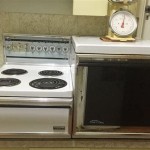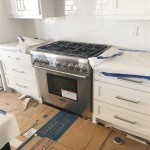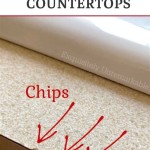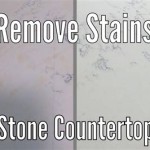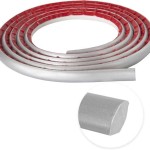How to Remove Rust From Quartz Countertops
Quartz countertops are a popular choice for modern kitchens and bathrooms due to their durability, non-porous nature, and aesthetic appeal. However, despite their resilient surface, quartz countertops are not entirely immune to staining. One common issue homeowners face is the appearance of rust stains, which can detract from the pristine look of the countertop. Rust stains typically occur when iron-containing objects, such as cast iron pans, metal cans, or even dripping pipes, are left in contact with the surface for extended periods, especially in humid environments. The porous nature of the surrounding material, if any exists, can also exacerbate the issue.
Addressing rust stains on quartz requires a methodical approach. Aggressive cleaning methods can damage the countertop's finish. Therefore, it is essential to start with the gentlest techniques and gradually increase the intensity of the cleaning process only if necessary. This article provides a comprehensive guide on how to effectively remove rust stains from quartz countertops while minimizing the risk of damage.
Identifying the Severity of the Rust Stain
Before attempting any cleaning method, it is crucial to assess the severity of the rust stain. Light surface stains may respond to simple cleaning solutions, while more deeply embedded stains may require more specialized treatments. Begin by visually inspecting the stain. Is it a faint discoloration, or a prominent, dark mark? Gently run a finger over the stain. Does it feel smooth, or is there a noticeable texture? The answers to these questions will influence the choice of cleaning agents and techniques.
Furthermore, consider the age of the stain. Fresh rust stains are generally easier to remove than older, more established stains. If the stain has been present for an extended period, it may have penetrated deeper into the quartz surface, requiring more persistent efforts. Understanding the depth and age of the stain will allow for a more targeted and effective cleaning strategy.
It is also important to identify the source of the rust. Eliminating the source is crucial to preventing future stains. Check for leaky pipes, rusty metal objects in contact with the countertop, or even water with high iron content. Addressing the root cause of the rust is as important as removing the existing stain.
Gentle Cleaning Methods for Light Rust Stains
For light rust stains, begin with the mildest cleaning solutions to avoid unnecessary abrasion or chemical damage. A simple mixture of dish soap and warm water is often effective for removing surface stains. Apply the solution to the stained area and gently scrub with a soft cloth or sponge. Avoid using abrasive scrub pads or steel wool, as these can scratch the quartz surface.
Baking soda is another gentle cleaning agent that can be used for light rust stains. Create a paste by mixing baking soda with water. Apply the paste to the affected area and let it sit for a few minutes. Then, gently scrub with a soft cloth or sponge and rinse thoroughly with water. Baking soda is mildly abrasive and can help lift the rust stain without damaging the quartz.
Another alternative is using a paste of cream of tartar and hydrogen peroxide. This mixture is slightly more potent than baking soda and water but still relatively gentle. Apply the paste to the stain, let it sit for about an hour, and then wipe clean with a damp cloth. Ensure to rinse the area thoroughly after cleaning.
After using any cleaning solution, thoroughly rinse the area with clean water to remove any residue. Dry the countertop with a soft cloth to prevent water spots. Inspect the area to see if the stain has been removed. If the stain persists, proceed to more aggressive cleaning methods.
Stronger Cleaning Solutions for Stubborn Rust Stains
If gentle cleaning methods prove ineffective, stronger cleaning solutions may be necessary. However, it is essential to exercise caution when using these solutions to avoid damaging the quartz countertop. Always test the cleaning solution in an inconspicuous area first to ensure it does not discolor or etch the surface.
One effective solution for stubborn rust stains is a commercial rust remover specifically designed for use on quartz or other delicate surfaces. Always read the product label carefully and follow the manufacturer's instructions. Apply the rust remover to the stained area and let it sit for the recommended amount of time. Then, gently scrub with a soft cloth or sponge and rinse thoroughly with water.
Another option is to use a solution of lemon juice or white vinegar. These acids can help dissolve rust. Apply the lemon juice or vinegar to the stain and let it sit for about 30 minutes. Then, gently scrub with a soft cloth or sponge and rinse thoroughly with water. While these are natural solutions, it's important to note that prolonged exposure to acids can etch the quartz surface, so monitor the process closely and avoid over-saturation.
Oxalic acid-based cleaners are also effective at removing rust stains, however, these are potent and should be handled with care. Follow the manufacturer’s directions explicitly and always wear gloves and eye protection when using such cleaners. Apply sparingly to the stain, allow to sit for the directed time, then thoroughly rinse with water.
When using any of these stronger cleaning solutions, always work in a well-ventilated area and avoid prolonged skin contact. After cleaning, thoroughly rinse the area with clean water to remove all traces of the cleaning solution. Dry the countertop with a soft cloth to prevent water spots and further protect the surface.
Preventing Future Rust Stains on Quartz Countertops
Prevention is always better than cure when it comes to rust stains on quartz countertops. Taking proactive measures can significantly reduce the risk of future stains and maintain the pristine appearance of the countertop.
One of the most effective ways to prevent rust stains is to avoid placing iron-containing objects directly on the countertop. Use trivets, placemats, or cutting boards to create a barrier between the metal objects and the quartz surface. This will prevent any rust from forming on the countertop.
Regularly inspect for and repair any leaks or drips from pipes or faucets. Even small leaks can cause rust stains over time. Keep the countertop dry and wipe up any spills immediately. Moisture is a key factor in the formation of rust, so keeping the surface dry will help prevent staining.
Consider using a countertop sealant specifically designed for quartz surfaces. While quartz is non-porous, a sealant can provide an extra layer of protection against stains and spills. Reapply the sealant periodically as directed by the manufacturer.
Regular cleaning with a mild soap and water solution can also help prevent rust stains. Wipe down the countertop after each use to remove any potential contaminants. This will help keep the surface clean and prevent stains from setting in.
In areas with hard water, consider using a water softener to reduce the iron content in the water. High iron content in water can contribute to rust stains on countertops and other surfaces. A water softener can help remove iron and other minerals from the water, reducing the risk of staining.
Finally, be mindful of the products used for cleaning the countertop. Avoid using abrasive cleaners, steel wool, or harsh chemicals, as these can damage the surface and make it more susceptible to staining. Stick to gentle cleaning solutions and soft cloths or sponges to maintain the integrity of the quartz countertop.

The Easy Guide For How To Clean Quartz Countertops Tidbits Twine

How Can I Remove Rust Stains From A Cultured Quartz Countertop Surface Home Improvement Stack Exchange

Removing A Rust Stain From Quartz Countertop

Housecleaning Tips Removing Rust From Countertops

How To Get The Rust Off Your Quartz Countertops In Seconds Youtube

How To Treat Rust Stains On Your Quartz Countertops Common Mistakes Avoid

Can Remove Rust Stains From Quartz Countertops Wabisabigroup Com

How To Treat Rust Stains On Your Quartz Countertops Common Mistakes Avoid

How To Remove Rust From Countertop Easy

Quartz Countertop Stain
See Also


